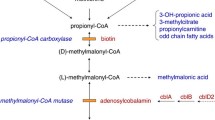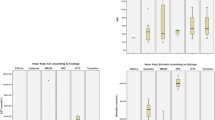Abstract
The outcome for children with severe forms of methylmalonic acidaemia remains poor. Patients have recurrent episodes of metabolic decompensation; many have neurodevelopmental complications and the mortality is high. Long-term survivors develop chronic renal failure. Because of the poor prognosis, transplantation has been considered. In young patients with early onset disease, liver transplantation might prevent complications and, for those in end-stage renal failure, kidney transplantation could be combined with that of the liver. The results of liver transplantation in the early onset patients have generally been disappointing. In particular there appears to be a high risk of neurological complications. The optimal management of those in end-stage renal failure has not yet been determined although combined liver and kidney transplantation has been successful.
Conclusion The role of transplantation in methylmalonic acidaemia has yet to be established and follow up of all patients who are considered for transplantation is essential.
Similar content being viewed by others
Author information
Authors and Affiliations
Rights and permissions
About this article
Cite this article
Hoff, W., McKiernan, P., Surtees, R. et al. Liver transplantation for methylmalonic acidaemia. Eur J Pediatr 158 (Suppl 2), S070–S074 (1999). https://doi.org/10.1007/PL00014326
Published:
Issue Date:
DOI: https://doi.org/10.1007/PL00014326




